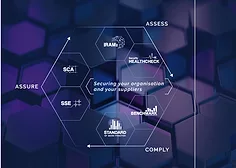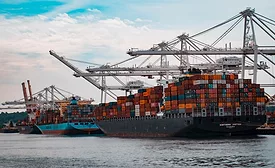Home » supply chain
Articles Tagged with ''supply chain''
Supply chain chaos is ramping up cyber risk
Supply chains are going digital faster than ever. It’s time to address cyber risk.
August 19, 2020
Sign-up to receive top management & result-driven techniques in the industry.
Join over 20,000+ industry leaders who receive our premium content.
SIGN UP TODAY!Copyright ©2026. All Rights Reserved BNP Media.
Design, CMS, Hosting & Web Development :: ePublishing









